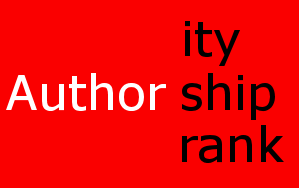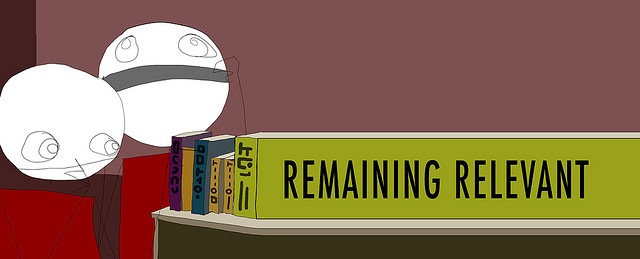Could Author Rank influence the display of Authorship snippets?
Author rank seeks to highlight influential authors based on links, citations and peer review but how will this be presented to the public? Could Author Rank influence the display of authorship snippets in search results?
 Google authorship and the concept of author (or agent) rank has captured the popular imagination in a way virtually nothing else search related has been able to do.
Google authorship and the concept of author (or agent) rank has captured the popular imagination in a way virtually nothing else search related has been able to do.
Authorship is so easy to set up that anyone can do it but a misguided belief that authorship equates to author rank means that many feel their rankings will improve just by ensuring their rich snippets show up in search.
Author Rank
Author rank, as is widely understood, doesn't exist yet - as far as we know - but in a recent conversation David Amerland (search expert and author) advised that Google uses the term "author rank" internally to refer to a number of different values relating to authority via "relational extraction mapping" or the detection of semantic relationships between items: who, what, how, where.
So, author rank per se doesn't exist (yet) but key signals which will contribute to it are already in use and being used in such a way that they emulate/pre-date an actual author rank system.
I have mentioned before that Google and Bing appear to be heading towards a similar destination but via different paths - that destination is relevance and authority.
I asked if we actually needed authorship to help establish authority as other signals can be used to determine the creator of a given piece of work.
Bing seeks to identify "people who know" using these signals and display them separate from search within the social sidebar. Google always seeks to return the most relevant links but author rank is designed to highlight significant people rather than pages as its algorithm aims to determine our search intent using semantics.
Faceless
As has been said before, with authorship, Google is trying to remove the faceless nature of the web so that we know who is responsible for content but could a combination of author rank and authorship actually go one step further?
A number of reports and anecdotal articles point to authorship having a quasi-SEO effect with enhanced click-through rates (CTR) from search results when, all else being equal, an authorship snippet is visible. A frequently quoted increase in CTR is around a third.
Previously, search results included the profile photos of those in our social circles who might have recommended an item but this was dropped as Google found they had little impact on item CTR. It is argued that there must be some truth to enhanced click-throughs for those items displaying authorship snippets or Google would no longer have them in our SERPs.
I have previously expressed the view that snippets are currently of benefit within search results but that benefit will be lost once all results display an authorship snippet. Consequently, it is not in the interests of content creators for authorship to fill our SERPs.
We know that setting up authorship is no guarantee that the associated snippet will show on any given set of results so, is this designed to ensure that they continue to have an impact?
Why do snippets have an effect on CTR?
An obvious answer is that they make specific results stand out from the rest but could it also be that snippets are introducing a perceived indication of authority?

Is this where authorship is heading? Could Google use author rank as a means of filtering search results so that only those items by the most relevant and influential authors display authorship snippets regardless of whether authorship is correctly established?
Would it make sense to transform this perceived notion of authority into an actual indication of it?
Brian Clark at CopyBlogger has already asked "What if Author Rank never happens?" but others argue that, in a sense, it already is but both sides meet in the middle on what is required to build reputation and authority.
Relevance
At its heart, author rank is a relevance engine where decisions about reputation and authority are crowd-sourced. Any implementation of such a system will be just another signal contributing to our search results but, by connecting people to pages, Google has the option of using this authority to visually influence our SERPs by filtering which results should, or should not, be accompanied by authorship snippets.
As Google is intent on bringing us the most relevant results and it is accepted that authorship snippets drive traffic, Author Rank could be a valuable tool in ensuring that searchers are directed to the most relevant results.
Images by myself and thegloaming.

[...] Could Author Rank influence the display of Authorship snippets? (Colin Walker – Social Thoughts) [...]